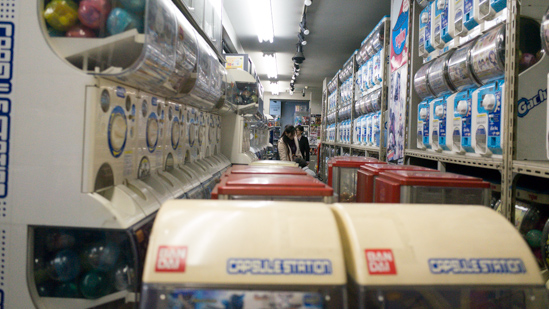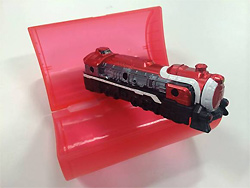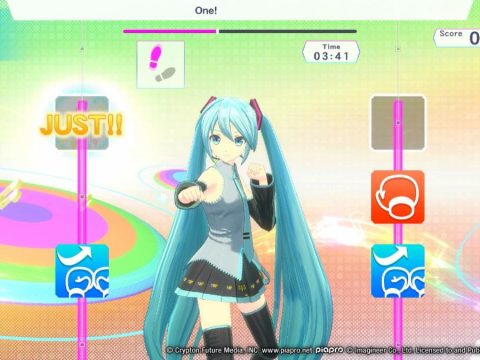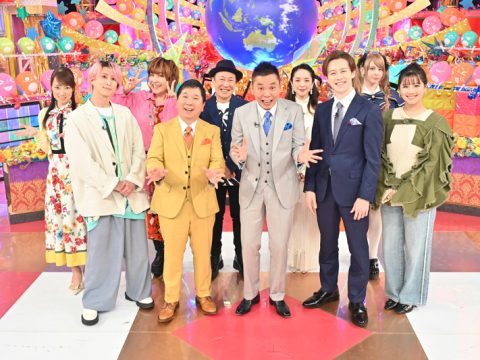
You may have heard about Japan’s recent sales tax hike from 5 percent to 8 percent, the first such change since 1997, when — wait! Don’t run away! Look, Japanese toys!
So as of April 1, everything in Japan is more expensive. That includes stuff you import from overseas, and items sold online are included too — if I log on to e-store on a Japanese 3DS, there are plenty of warnings to let you know about the increase in prices across the board, assuming you’re feeling foolhardy enough to try buying something from that deathtrap.
But how do you deal with a tax increase when the product you’re selling is tied to a vending machine that can only accept 100 yen coins? That’s the issue Bandai’s facing with their Gashapon capsule toy vending machines, popular worldwide but particularly numerous in Japan — around 400,000 machines total.

If you’ve never visited a Japanese department store before, imagine an entire section dedicated solely to wall after wall of these things — that’s the kind of scale we’re talking about. But what happens when you have to raise the price on every item sold by only a few percent, and the only currency the machines are designed to accept prevent customers from paying in a sensible way?
Bandai’s solution? Selling more expensive items for between 300 to 500 yen, or around $3-5, contained in soda can-sized containers instead of the small capsules traditionally used in Gashapon machines.
For the trial run on this concept, Bandai’s going with bigger, badder toys based on Ressha Sentai Tokkyuger, the latest Super Sentai/Power Rangers show, which frequent Otaku USA contributor David Cabrera tells me is pretty bad. But are kids and otaku gonna ride this train? Only time will tell.
Source: Asahi Shimbun







